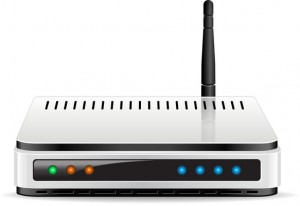 Choosing and buying a router for your wireless internet at home can be a frustrating experience; you want speed, performance and coverage as well as longevity in the life of your upgraded router.
Choosing and buying a router for your wireless internet at home can be a frustrating experience; you want speed, performance and coverage as well as longevity in the life of your upgraded router.
It’s not an easy task if you add to it the complexity of all those numbers attached to the router and the knowledge required to install it.
So, here are few considerations that will help you choose your next wireless router:
What’s the end goal?
Ask yourself: why am I buying a router? If it’s simply to build a wireless network at home and have access to the Internet, you could probably get away with a router at under $200.
However, if you want extra features, such as added security, parental controls, the ability to connect USB printers, and added external storage drives for data sharing, you need to search for a higher end router.
Also, you may not even need to have a wireless router in your house, especially if you use a PC or laptop that is already connected to a cable or DSL modem and there are no other devices that need to be connected wirelessly to the internet.
Should you go for a single or dual band?
Bands are the frequencies in which wireless communications operate. A single-band is geared toward simple wireless networks and a dual-band router operates on both the 2.4 and 5 GHz frequencies.
Although a router that sustains the 5 GHz frequency will work great for gaming and online streaming, it is not as good as the 2.4 when it comes to distance. So, consider the distance you need to cover when choosing the required band.
Further considerations
When buying your next router, remember that soon enough the 6th version of the Internet Protocol (IPv6) will be here, so you will need a router that supports this transition.
Another consideration is extra features that a router may offer, such as SD card slots and USB ports for printers for example.
If you want to future-proof your investment, make sure you get an 802.11 AC router, which is fast becoming the standard in wireless networking.
Finally, even with home networks, the more security, the better!
(Image Source: iCLIPART)
